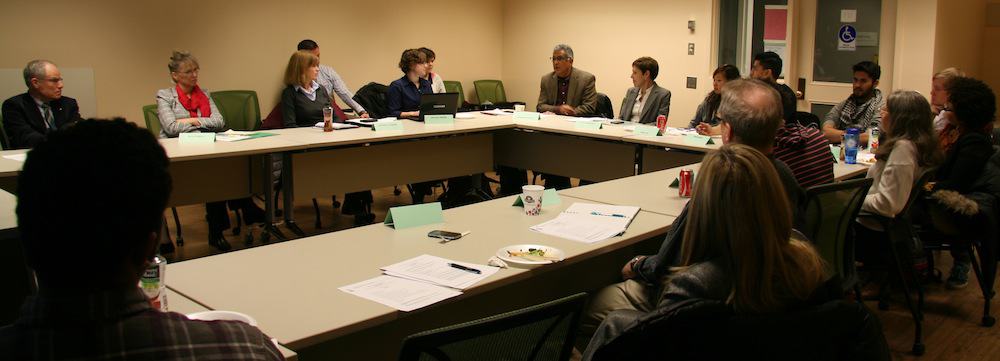This year has gotten off to a bumpy start for the Council on Student Services (COSS). The first meeting was polarized, featuring student representatives and members of the university administration butting heads over issues surrounding fee increases. The introduction of a pro-rated $80 summer user fee at Hart House for all graduate students was the first contentious issue. Aman Gebru, from the GSU, stated that he believed the administration circumvented proper procedures, and did not act in good faith when discussing and implementing this new fee. Hart House representatives countered Gebru’s statement by asserting that they followed all proper protocols. Hart House warden Bruce Kidd, said that graduate students had been given ample opportunity to discuss this fee increase, but representatives were only present for two out of eight Board of Stewards Meetings. The dean of student affairs at UTSC, Desmond Pouyat, stated that he believes student leaders are ideologically opposed to fee increases, and thus block all budgets that come before COSS. “We’re really creating a situation of spinning our wheels on ice. It seems somewhat fruitless,” he said.
During Pouyat’s statement, Munib Sajjad, president of the University of Toronto Student’s Union (UTSU) called for Pouyat to be censured because he referred to student leadership as “an infestation.” The chair conceded that this language was not appropriate. Yolen Bollo-Kamara, vice-president, equity of the UTSU, argued that voting down the budgets was not a waste of time. “I do hope that this sends a clear message that students do oppose increasing our tuition fees,” she said.
Kidd defended the proposed increases in ancillary fees, arguing that institutions like Hart House require further funding to keep up with increasing costs. “The only way our budgets have increased is by increasing enrollment. That causes other capacity issues,” he said. Susan Froom, president of the Association for Part-Time Undergraduate Students, said that instead of going to students for funding, the administration should be proactively seeking more from outside sources.
“COSS is a terrific body it provides an excellent service,” said Pouyat. “It’s hard to speak about these issues. You speak the truth and you kind of get slammed.”
COSS chair Brad Evoy, an executive on the GSU emphasized that: “Each year, all such parties have made clear their commitments to these services, but in the end are divided by their perspective — as is often the case in governance.”
Made up of 17 voting members, COSS is the only central university body with a majority of seats held by students. Hart House, the Council of Athletics and Recreation (CAR), and the Office of Student Life (OSL), whose ancillary fee budgets must be approved by COSS, also have representatives. Under the Ontario government guidelines, it is mandated that students be involved in decisions to increase non-tuition ancillary fees. In an effort to increase transparency, Evoy has opened up all COSS meetings to the general public for the first time in four years.
Correction Monday January 20, 2014: A previous headline on this article incorrectly stated that the Council on Student Services had rejected proposed fee increases. This is incorrect. Voting will take place at the meeting on February 26th.


